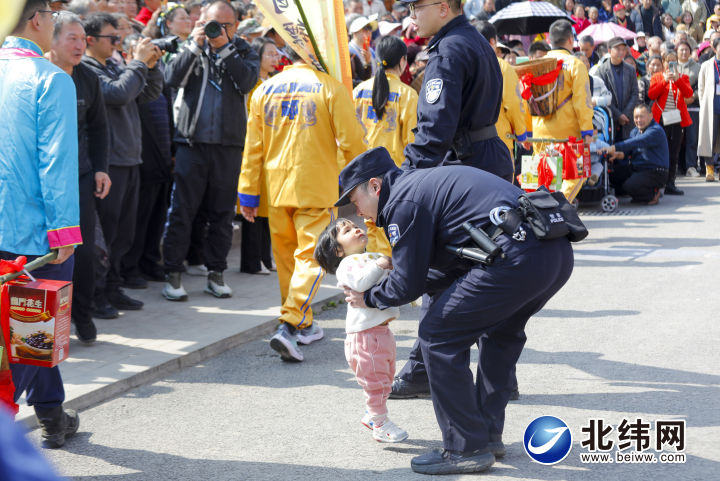Fatal police violence is often depicted as a series of singular incidents, each event a moment in which life ends for one person and life is forever changed for their loved ones. But it can have broader and longer-lasting implications for the communities where it happens.
Police violence is rarely approached as a public health issue that causes immense loss for the communities afflicted. The impact is more disparate in Black neighborhoods. Black men and women are 2.5 and 1.4 times, respectively, as likely as average to die at the hands of the police. In places plagued by police violence, life expectancy and mental health suffer. And a recent study in California finds that police violence could be playing a role in another type of health inequity.
Researchers found that the risk for late preterm birth increases when police violence happens in the neighborhood where the pregnant person lives. The association is stronger for moderate preterm delivery among Black people when a Black person is killed by police in their neighborhood. (These findings are not to be confused with an unrelated study from 2019 that made headlines linking infant health to police violence and was retracted after the author reexamined the data.)
Lead researcher Dana Goin, a postdoctoral scholar in reproductive sciences at the University of California, San Francisco, spoke with Slate about the study’s findings, the role of environment on physical well-being, and how police violence could “influence health inequities going into the next generation.”
This interview has been edited for length and clarity.
Advertisement Advertisement Advertisement AdvertisementSlate: Let’s start with a quick overview of the study.
Dana Goin:We compared two different sources of data on fatal police violence to study the relationship between this type of death and the risk of preterm birth in the neighborhoods nearby. In order to study this, we compared the women and birthing people who lived in a neighborhood where someone was killed by the police to people who also lived in that neighborhood, but who were pregnant at different times and weren’t exposed to fatal police violence during their pregnancy. We observed some increases in the risk of late preterm birth, which is delivery between 34 to 36 weeks among all the women in our study. And there were even greater increases in the risk of moderate preterm birth, which is delivery between 32 and 33 weeks, among Black women when a Black person was killed by the police.
What did you find the most interesting about the results?
AdvertisementWe hypothesized that the associations would be stronger for Black women, but I don’t think we anticipated that it would be so much stronger. There are even stronger associations for mothers who are pregnant with female babies. This was particularly interesting because there’s a lot of public health literature that shows that male babies in utero are much more sensitive to stress. So this suggests, to me, that there might be some miscarriage happening that we’re not capturing because we were only able to use the birth records in this study. So we’re limited to live births or fetal deaths that happened after 20 weeks. If there is early fetal loss that’s happening, that could explain why we’re seeing these really strong associations in the female births. That’s something that was really interesting to me that I’m hoping to explore and study.
Advertisement AdvertisementPopular in News & Politics
- The Meltdown in Michigan Says It All About Where MAGA Is Headed
- A Great American Con Led to the Mess on College Campuses. Everyone Fell for It—Again.
- Donald Trump’s Lawyer Helped Make Alvin Bragg’s Case for Him
- There’s One Part of Brittney Griner’s Account of Life in Russian Prison That Really Stands Out
I’m really interested in what these results say about our society and the role that our environments play in physical health and mental well-being.
The results of this study suggest that the deaths from fatal police violence are not only more common in Black and brown communities, but that they can affect the health of mothers and babies during pregnancy. And the stronger links that we observed among Black women when the victim was also Black really suggests that this type of fatal police violence can influence health inequities going into the next generation. This is another instance of how features of the social environment and of the communities in which we live can affect our health. There are many other studies that have documented that, but this is one specific instance of one type of social determinant of health.
AdvertisementHow do these results strengthen the connection between racism and physical well-being?
Our study is specifically on preterm birth, and I think more studies will need to be done to understand what we call the mechanism effect, what is actually physiologically happening between the experience of these incidents and a woman’s risk for preterm birth. But we do know that severe stress during pregnancy is linked to a lot of adverse birth outcomes, including preterm birth. And other work has shown that different forms of both interpersonal and structural racism influences a lot of adverse health outcomes.
Advertisement AdvertisementWhat would you say the study reveals about the impact that police violence has on maternal health? And how would you like to see the results of this study inform the public health narrative going forward?
AdvertisementWe’re building on the work of a lot of community organizers and activists who have been telling us these things. But this is, I believe, the first study in the peer-reviewed literature that has established that link. The goal of this study is to bring it into the realm of science.
Public health, as a discipline, has acknowledged the ways that the systemic oppression and marginalization of certain communities—the Black community in particular—is really driving the stark health disparities that we see in the U.S. Understanding the history of oppression is really critical to understanding why we observe these patterns in health inequities, which indicate that a lot of work has to be done if we’re going to try to address these issues.
We can’t ignore history.
Tweet Share Share Comment 顶: 8踩: 8325







评论专区